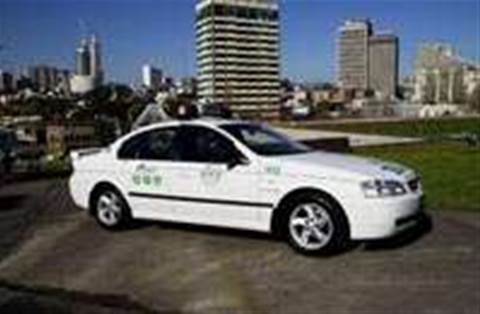Premier Cabs is one of the smaller taxi groups but the move to Voice over IP has allowed it to integrated the same technology as the bigger guys.”
The decision to compile a detailed requirements document before talking to vendors is becoming a common approach amongst those looking to implement Voice over IP, Neil says. “I think it's a clever way of doing things, first you define your basic business requirements, then some IT requirements and then you go and talk to the market. These requirements obviously evolve as you learn more about Voice over IP.”
“Some organisations do it in two steps, they do an information session and talk to all the major players and put an information document together and then from that they'll put a tender together. Others, like Premier, are just doing it all in one process.”
NSC did a complete redesign of Premier Cabs' contact centre from a technology stand point, bringing in professional services and project managers working closely with Premier Cabs to understand its business. This mostly involved coping with differ call patterns at different times of day.
“We see the services as equally important to the products, these days about 40 cents in every dollar is spent on services,” Neil says.
“It's like buying a new software system - you can buy the best possible technology but if it's not integrated properly then it's not worth buying.”
While Premier Cabs elected to host its Voice over IP equipment at its Granville headquarters, a growing number of clients are electing to have it hosted and maintained offsite, Neil says.
“In the last 12 months we've seen a migration to put the technology into data centres and hosted centres - in fact we've got a data centre ourselves and we're starting to do a bit of that. We're building that part of our business because we see that as a model moving forward, a growth model,” he says.
“A lot of people are looking to push all of this out. Companies are getting frustrated - the directors and leaders are saying they're not really interested in running IT and, where they can, they'll outsource it and make it someone else's responsibility.”
With the new Avaya equipment onsite, even before the switch to Voice over IP, Premier Cabs has access to a range of new features such as EC500 or “extension to cellular”. EC500 allows a mobile phone to act like a desk phone so users can make and receive land line calls on their mobile phone.
Early benefits
Another early benefit of the new system is the ability to record calls using a Verint call recording solution connected to the Avaya Application Enablement Services server. The nature of Voice over IP calls offers far more flexibility when it comes to recording and storing calls.
“The telephone recording component now it makes it a lot easier for us to introduce a quality program,” Kelly says, “and it's once of the areas where we're making some cost savings compared to the old system.”
Kelly realises the Premier Cabs is only scraping the surface of Voice of IP's potential and already has big plans for the technology. Another area where significant savings could be made is in the use of Voice over IP via radio to talk to drivers - a process which Kelly estimates currently costs around $130,000 a year. Integration with the Raywood dispatch system will again pose a challenge here.
“Another idea we've always tossed about is telecommuting for call centre operators,” Kelly says.
“It difficult to ring people on short notice who live far away and expect them to come in. If we could just ring them and say ''look, can you help us out for three hours”, as long as they've got broadband they can come in through a VPN and we add their phone as an extension off the switch.”
In a highly competitive industry, it's such thinking that will allow Premier Cabs to stay competitive against the larger players, he says.
“I think most taxi companies are up near the front when it comes to embracing new technology - we were probably the first in Sydney to use GPS for actual dispatch rather than just driver safety,” Kelly says.
“I guess it's a competitive edge, you've got to have something the other bloke doesn't have.”





_(21).jpg&h=142&w=230&c=1&s=1)


.png&h=142&w=230&c=1&s=1)




.jpg&w=100&c=1&s=0)











